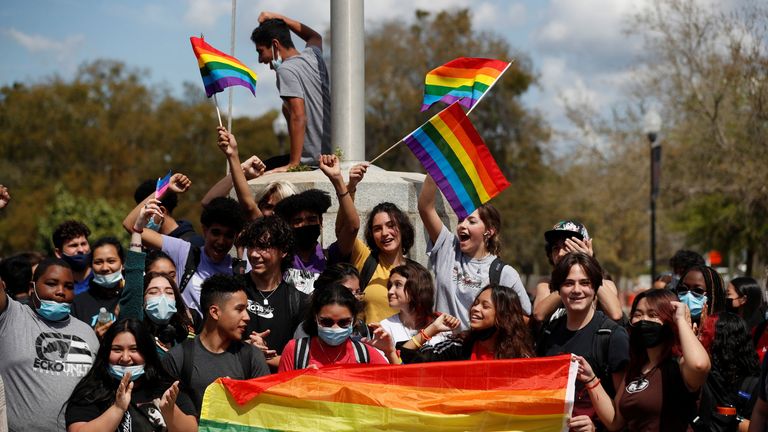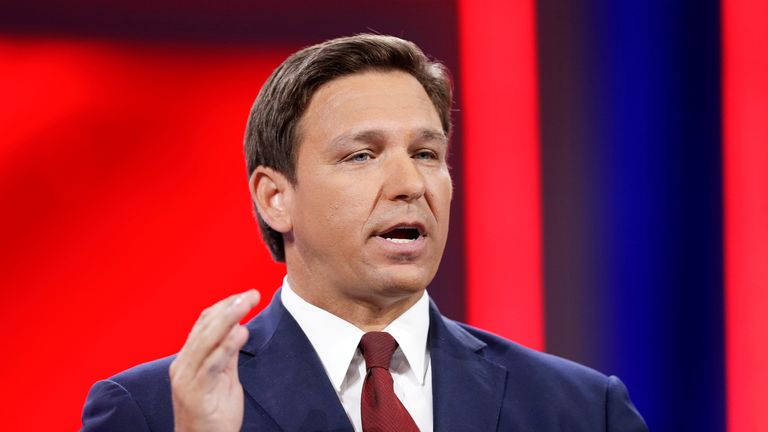Teachers in Florida have been banned from giving lessons on sexual orientation and gender identity to children under the age of nine.
Ron DeSantis, the state governor, signed the contentious “don’t say gay” bill into law on Monday.
The bill has drawn intense national scrutiny from critics who argue that it marginalises LGBTQ people.
It forbids teaching children from nursery to the third grade about sexual orientation and gender identity.
The legislation has pushed Florida and DeSantis, an emerging name in the Republican Party and a potential 2024 presidential candidate, to the forefront of the country’s culture war.
LGBTQ advocates, students, Democrats, the entertainment industry and the White House have denounced its aims.
Mr DeSantis and Republicans have repeatedly said the measure is reasonable and that parents, not teachers, should be broaching subjects of sexual orientation and gender identity with their children.
“We will make sure that parents can send their kids to school to get an education, not an indoctrination,” he said before signing the bill into law.
He and other speakers stood at a podium adorned with a placard reading “Protect Children/Support Parents”.
Critics say the bill is so vaguely worded that speech could be muzzled throughout state schools.
The legislation says: “Classroom instruction by school personnel or third parties on sexual orientation or gender identity may not occur in kindergarten through grade 3 or in a manner that is not age appropriate or developmentally appropriate for students in accordance with state standards.”
Walkouts
Parents would be able to sue school heads over violations of the law.
Public backlash began almost immediately after the bill was introduced, with early criticism by Chasten Buttigieg, the husband of Transportation Secretary Pete Buttigieg, and condemnation from LGBTQ advocacy groups.
Democratic President Joe Biden called it “hateful”.
As the bill moved through the legislature, celebrities mobilised against it on social media and it was criticised at the Oscars on Sunday night.
Florida students staged walkouts and packed into committee rooms and statehouse halls to protest against the measure, often with chants of “We say gay!”
The Walt Disney Company, a powerful player in Florida politics, suspended its political donations in the state.
Its theme park workers staged walkouts over what they considered to be a slow response against the bill from Bob Chapek, its chief executive.
After Mr DeSantis signed the measure, the company released a statement saying: “Our goal as a company is for this law to be repealed by the legislature or struck down in the courts, and we remain committed to supporting the national and state organisations working to achieve that.”
Teachers afraid to talk
Throughout debates in the Republican-controlled statehouse, Democrats said the bill’s language, particularly the phrases “classroom instruction” and “age appropriate”, could be interpreted so broadly that discussion in any school year could trigger lawsuits and create a classroom atmosphere where teachers would avoid the subjects entirely.
“The bill’s intentionally vague language leaves teachers afraid to talk to their students and opens up school districts to costly and frivolous litigation from those seeking to exclude LGBTQ people from any grade level,” state representative Carlos Smith, a Democrat who is gay, said.
“Even worse, #DontSayGay sends a hateful message to our most vulnerable youth who simply need our support.”













